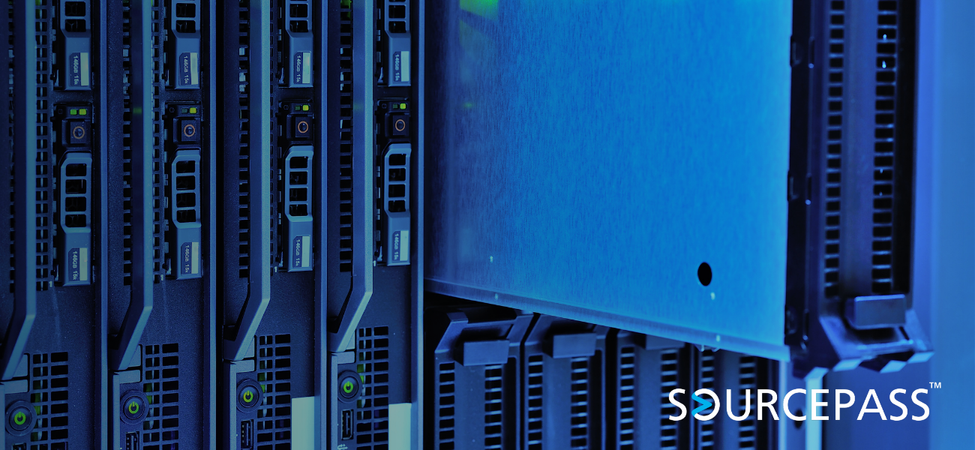Don't Wait to Replace Your Outdated Servers
Nov 05, 2024 Alex Davis Procurement Services | Security & Compliance 3 min read



As technology evolves, so do the risks associated with running outdated servers. While it may seem tempting to continue using old systems until they're no longer operational, this decision could be affecting the security and efficiency of your business.
If your servers are outdated (even if they don't seem like they're approaching end-of-life) it’s important to upgrade before it starts impacting your business . Here’s why acting now, rather than later, is so important:
1. Outdated Servers Are Security Vulnerabilities Waiting to Be Exploited
One key reason to replace outdated servers is the significant security risk. As servers age, manufacturers stop releasing updates and patches, which are crucial for defending against ever-evolving cybersecurity threats.
Without these updates, outdated servers become easy targets for hackers. Vulnerabilities in older systems are well-known by bad actors and, therefore, commonly exploited.
This can lead to data breaches, ransomware attacks, and other costly cyber incidents. Given a data breach can average over $4 million to remediate, you can feel confident the price to upgrade your server is exponentially less than the cost of a cyber attach.
Why Act Now? Every day your business operates with outdated servers, you are increasing the risk of a cyberattack. Every day of business interruption equates to high costs and loss of public trust. Upgrading your servers now ensures your data is protected by the latest security protocols and patches.
2. Once Manufacturer Support Ends, Your Server Becomes Vulnerable
As hardware ages, manufacturers eventually stop offering support, patches, and fixes. This essentially means no future software updates, security patches, or access to replacement parts. Without these, your server is left exposed to risks that could disrupt your operations and leave you with limited options when something goes wrong.
When a server breaks down after losing vendor support, repairing or replacing parts becomes increasingly difficult and expensive the longer you wait to upgrade. This leads to prolonged downtime, decreased productivity, and high remediation costs.
Why Act Now? By replacing outdated servers before they reach the end of their support lifecycle, you avoid the scramble to find solutions when issues eventually and inevitably arise.
3. Poor Performance and Downtime Slows Down Your Business - and it's Costly
Outdated servers don’t just pose a security risk—they slow down (or even halt) your business operations. Servers, as they age, struggle to keep up with modern software requirements and increasing demands of continually updated business applications. This leads to slower processing times, more frequent crashes, incompatibility issues, and poor overall system performance.
Slower performance affects not only internal operations but also the customer experience. Delays and downtime caused by outdated servers can impact your customers' trust and impact your core mission.
Why Act Now? Upgrading your servers now ensures your business continuity and allows you to monitor for active inbound threats without worrying about disruptions caused by slow or failing systems.
4. Increase of Compliance and Regulatory Risks
Many industries, namely the healthcare, finance, and retail sectors, are governed by strict data protection regulations. Using outdated servers can put your business out of compliance with industry-specific regulations like HIPAA, PCI DSS, or GDPR, as these systems are often unable to meet modern security standards the older they get.
Failure to comply with these regulations can lead to hefty fines, legal action, and reputational damage.
Why Act Now? Replacing outdated servers helps you maintain compliance with data protection regulations and avoids the severe consequences of non-compliance.
5. Long-Term Cost Savings
Upgrading servers may seem costly, but it’s a smart longer-term investment that saves money in the long run.
Maintaining old servers becomes increasingly expensive as they require more frequent repairs, emergency fixes, and higher energy consumption.
Modern servers are more energy-efficient and require less maintenance, leading to lower overall operating costs. Additionally, upgrading before system failure allows your organization to plan future upgrades in a controlled, cost-effective way, rather than dealing with emergency replacements.
Why Act Now? Investing in upgrades today will save your organization from the escalating costs of keeping outdated systems running and reduce the likelihood of unplanned emergency expenses down the line.
How to Get Started with Sourcepass
If your servers are outdated or approaching their end-of-life, now is the time to act! Here’s how to get started, with help from a managed IT services partner like Sourcepass:
- Assess Your Current Infrastructure: Plan ahead by identifying which servers are outdated, nearing end-of-life, or unsupported by the manufacturer.
- Create an Upgrade Plan: Develop a phased upgrade approach that minimizes disruptions while updating servers in a timely fashion.
- Consult with Experts: Partner with an IT expert or Managed Service Provider (MSP) like Sourcepass to ensure a smooth and efficient transition to modern servers. Sourcepass can also help you identify what needs upgrading and when.
- Budget for Long-Term Success: Incorporate server upgrades into your ongoing IT budget and execution plans to ensure your systems remain up to date and secure.
Delaying the replacement of outdated servers can put your business at serious risk—from security and cost to operational downtime and loss of trust.
By starting your upgrade plan today, you can protect your business from easily avoidable cyber threats, improve system performance, ensure regulatory compliance, and save money in the long-term.
Don’t wait for an emergency to force your hand. Take control of your IT infrastructure today by upgrading your servers with Sourcepass before it's too late.
Ready to upgrade? Contact us today to schedule a server assessment and develop a tailored upgrade plan for your business.
Subscribe To
Sourcepass Insights
Sourcepass Insights
Stay in the loop and never miss out on the latest updates by subscribing to our newsletter today!


